

As game genres go, interactive movies suck. Probably less popular than text adventures, interactive movies – which enjoyed a brief spell of popularity on early laser disc (and later the first CD ROM platforms) home entertainment systems – were poorly made, badly executed and ultimately unsatisfying.
It’s hardly a surprise no one makes them anymore.
Or is it? Is the technology more suitable now, with Blu-ray discs and portable media devices like the iPad? Could it be that those quite awful games of the late 1980s and early 1990s were pioneering a form of gameplay that the technology of the time was unsuitable for?
And is that technology available now?
One man who thinks so is Tim Follin, a freelance audio producer who produced soundtracks for games such as Bionic Commando, Ghouls and Ghosts, Solstice, Equinox, Plok, Rock ‘n’ Roll Racing and others back in the 1980/90s before moving to composing for 32-bit consoles and now works in TV commercial production.
To bring the project to life, Tim has successfully raised backing on Kickstarter (although far short of being one of the five most successful campaigns) to assemble a group of superb actors.
The idea of Contradiction is simple. It’s an interactive detective drama that you play on your tablet. Unlike the usual multiple choice interactive gaming experience, however, Tim has designed gameplay so that the player is looking for a contradiction (hence the name) to help them solve the puzzle, rather than the branching format used in many adventure games, both on computers and in the old Choose Your Own Adventure books from the 1980s (a literary genre that has found a new lease of life on iOS).
“Characters give you a piece of evidence that you can collect, which might include three or four points, and one of those will contradict another point that they gave you when talking about something else. So you try to see where they’re lying. When you pair two pieces of contradictory statement, you then get a sequence where they admit that basically they were lying, and why, and that gives you more information.”
It is this information that allows the player to proceed as the whole conspiracy surrounding Atlas is uncovered.
Here’s the Kickstarter movie which helped to raise the game’s £3000 budget, in which Tim explains how the game works in more detail.
Interactive movies have had a somewhat depressing history. Also known as movie games, they were a key element of the first wave of laserdisc home entertainment centres, which enabled non-linear gameplay. This meant that a plot could be followed through the branching system Tim talked about, as the player made a selection and jumped to the corresponding chapter on the disc.
The 1983 arcade game Dragon’s Lair was an early popular example of an interactive movie on laserdisc, but despite the strong production values (characters were animated by ex-Disney artist Don Bluth) as Tim points out, “One of the problems was the seek time. [With] Dragon’s Lair, you press the button and nothing happens. Then you see a little bit of video.”
A sequel to Cinematronics’ Dragon’s Lair was Space Ace, and both games saw release on home computers and consoles. Such was their popularity that they spawned a series of interactive games but with drastically reduced investment, the developers using (then) obscure Anime movies and cutting them together to form a game.
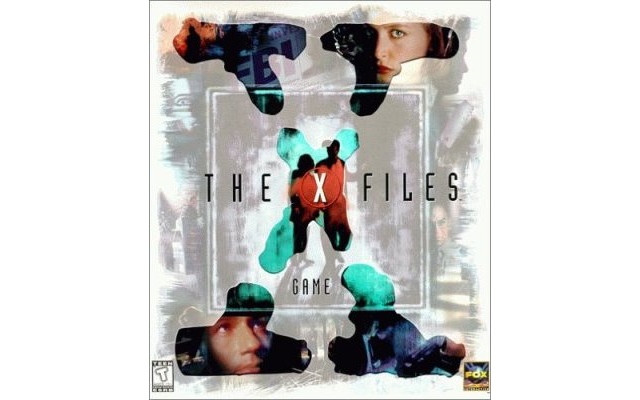
During the 1990s the genre saw a mini-revival with the arrival of CD-ROM and later DVD-ROM, thanks in part to devices such as the Panasonic/Sanyo 3DO, Philips CD-I, SEGA CD, Commodore CDTV and the smaller Amiga CD32. Notable releases include The X-Files: The Game on 7 CDs for Windows and PlayStation, but improvements in computer graphics and the lack of direct interaction with the game lead to a decline.
So why does Tim think the time is right for a revival?
“Originally it was an audio game,” says Tim, “We knew at the time the ideal home would be a phone but the iPhone hadn’t been invented yet. It developed into a video thing to be played on desktop. Again the technology wasn’t there so we left it for quite a long time, and I forgot about it.
“With the advent of the iPad, it just looked like something that would be ideal.”
You can see Tim’s point, although the platform isn’t without its challenges. Twenty-plus years ago, Tim worked on various 8-bit platforms, producing music for several games, but since then he hasn’t spent much time programming at all. “I thought I’ll have to learn to program again! I looked around and saw people were now developing in HTML5, and it’s flexible enough to run on a desktop in the Chrome browser and it runs fine and looks great. The problem is when you come to run it on the iPad, it looks fine, but the power isn’t there, there are problems with it.”
If HTML5 doesn’t work out, Tim has an experienced iPad developer lined up to “finish it off” but he seems to be very satisfied with the game as it is. “It’s not far off being completed, we’d like to film an extra little scene for the end.”
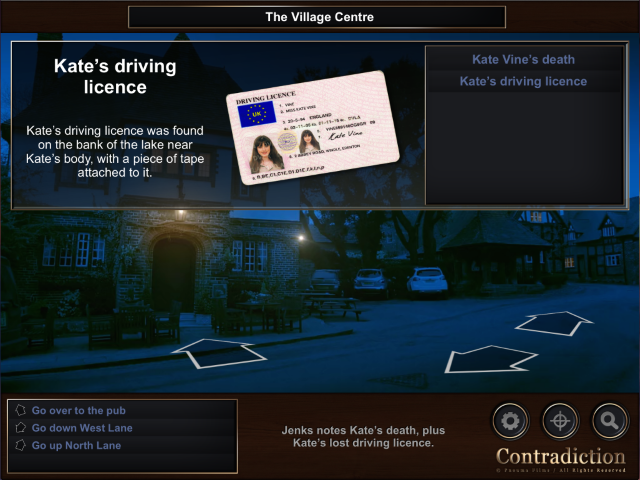
By taking the traditional branching aspect of interactive movie gameplay out of the equation, Tim Follin has been able to focus on producing a more coherent storyline. As with any strong adventure game, the script is all-important. “It took me about a year to get a script together, writing as a hobby… the story I ended up with wasn’t even my favourite, I had a few going at the time.
“It’s all based on the idea that people are lying, so you have to have a network of lies, which was the hardest bit from a writing point of view. I worked backwards to create the story, and this was the only one to throw up enough liars, with enough reasons to lie throughout the story.”
Contradiction stars Rupert Booth as the player character, a detective called Jenks, with Paul Darrow and John Guilor, as Paul and Ryan Ran, the villainous leaders of Atlas, the cult-like training company. Also appearing are Melanie Gray, Magnus Sinding, Ellen Chivers, Stephen Mosley, Anarosa De Eizaguirre Butler, Daniel Alfieri and Chris Jackson.
Here’s the trailer:
With a small budget, Tim had hoped to use a very limited script that would be embellished when they came to shoot. “Originally I just had a long document that would outline the scenes, and there was no actual dialogue, and I thought maybe I should get actors who can improvise, but you can’t do that, you just don’t have the time, so I had to script something.”
He observes that the script could be better, noting that “at worst, it’s functional,” but is saved by the quality of the actors.
Tim has spoken largely about the iPad, but this isn’t the only platform that he has in mind for Contradiction. There are various challenges – design and hardware – that he needs to deal with. For instance, with iPhone, “I’ll have to change the interface as a lot of this is reading text on screen.” Meanwhile, there’s the Android question.
“The problem is the technology isn’t there, but the demo on my wife’s Hudl is hopeless. This is the problem, video is very intensive to process… I’m not sure about the Samsungs. Some Androids let you play the video but you can’t put overlays on it.” The overlays are integral to moving through the game, so Tim’s concerns here are understandable, and more than likely this shortcoming is a result of Android fragmentation. “It’s probably going to have to be limited to the larger tablets.” Tim also plans to have the game available for Windows and Mac OS X.
Set for release in the second half of 2014, Contradiction features intriguing game play, a slightly sinister atmosphere and some superb performances from the actors. From what I’ve seen, there’s enough here to revive the interactive movie genre!
Do you recall the previous waves of interactive movies? Do you remember them fondly, or do you think it is a genre that should stay buried? Let us know your thoughts in the comments.
(Interested in learning more? The recording of this interview has been released as a podcast featuring Tim Follin and John Guilor.)
The X-Files Game Image Credit: Grandpafootsoldier
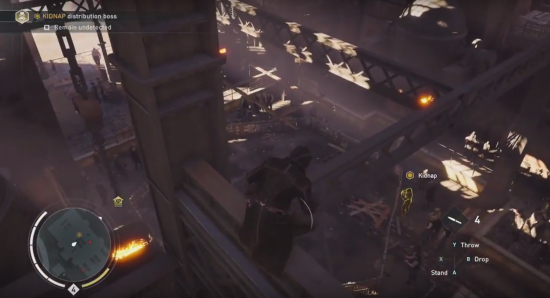

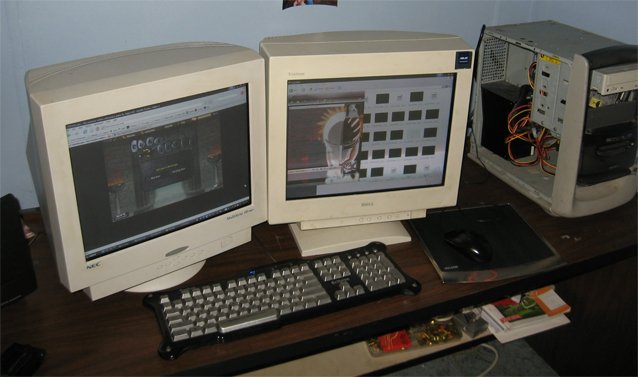
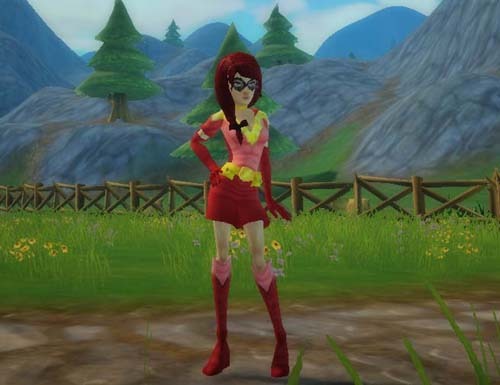
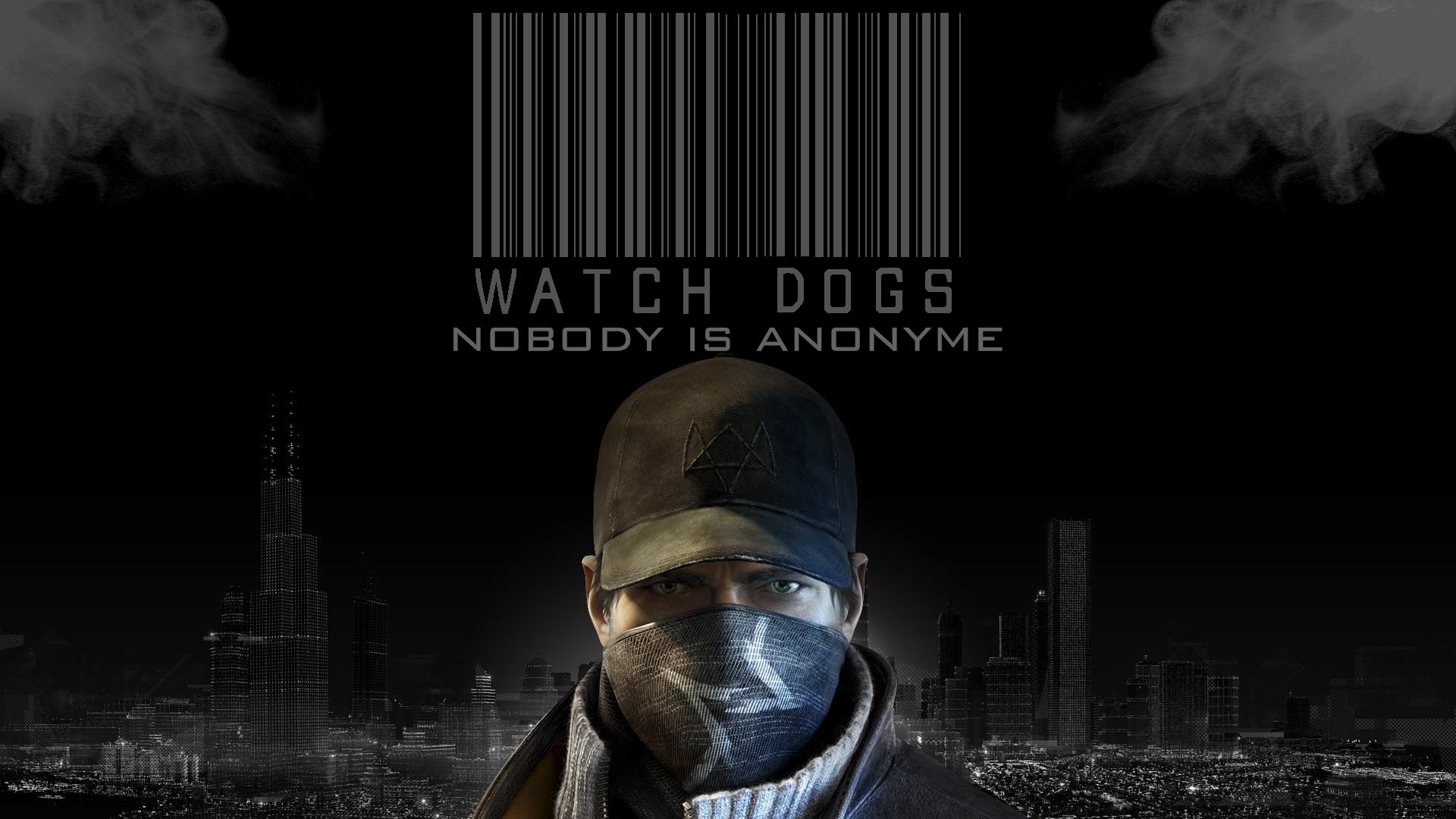 Watch Dogs Guide: How to Escape the Police at the End of Chapter One
Watch Dogs Guide: How to Escape the Police at the End of Chapter One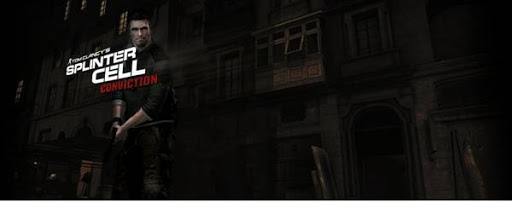 Tom Clancy's Splinter Cell: Conviction Walkthrough Guide
Tom Clancy's Splinter Cell: Conviction Walkthrough Guide How to Improve team, Select Party, Battle Better and more in Age of Ishtaria, Tips and Tricks Guide
How to Improve team, Select Party, Battle Better and more in Age of Ishtaria, Tips and Tricks Guide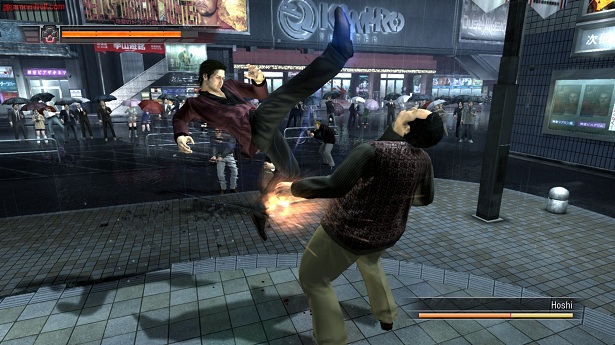 Yakuza 4 Walkthrough
Yakuza 4 Walkthrough Ether One (PS4) memory fragments / red ribbons locations
Ether One (PS4) memory fragments / red ribbons locations